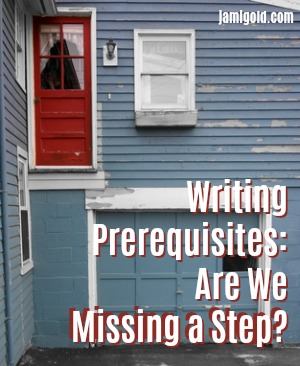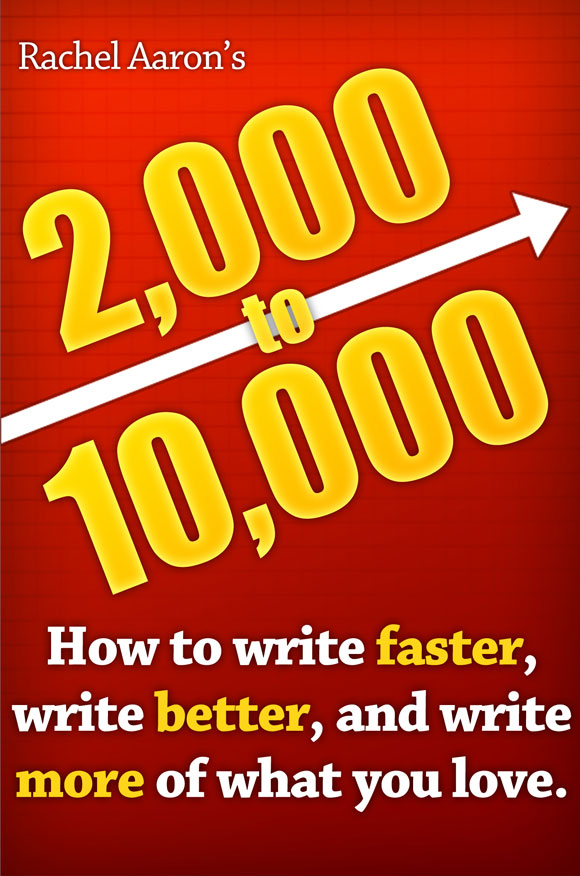Wait… I can hear some of you asking, “Are there prerequisites to call ourselves a writer?”
No. If you write, you’re a writer. Period. And that’s my point with this post. *smile*
Human nature means that we tend to compare ourselves with others. While that’s normal, those comparisons can also be destructive to our self-confidence.
For example, when it comes to whether or not we “deserve” to use the term writer, we might worry along the lines of…:
- “I haven’t finished a book yet, so I’m only pretending to be a writer.”
- “I write by the seat of my pants, and real writers plan things out, so I must not be a real writer.”
- “I don’t write every day, so maybe I’m not serious enough to call myself a writer.”
- “I struggle to get the words down, so…”
- “I can’t decide who or what my story is about, so…”
- “I’m not good with language or grammar, so…”
- “I’m not published yet even though others who started writing at the same time are, so…”
Comparing ourselves or what we’ve done or how we’ve done it to others can leave us feeling inadequate. If we don’t feel like we’re at their level, we might question how we could consider ourselves a writer like them.
We Are Not Inadequate
When we pay attention to other writers, we’re likely to find some way in which we fall short. Every writer—no matter how successful—could find something to feel inadequate about if they let their self-doubt get a hold of them.
Comparisons can be destructive to our self-confidence. Click To TweetYes, even J.K. Rowling could feel inadequate in some way if she let herself. Maybe she doesn’t follow the “write every day” advice. Or maybe she thinks she could have more books out by now if she changed her writing process.
I’m not saying she does, of course—I don’t have her on speed dial!—but the point is that every one of us could find some way to feel inadequate if we let comparisons and self-doubt infect our perspective. *smile*
The Comparison Trap
A long time ago, I ranted about why I try not to pay attention to numbers very much, whether that means blog readers, social media followers, daily word count, newsletter subscribers, book sales, Amazon reviews, etc. Obviously, I can’t be completely oblivious to them, but I try not to let the numbers dominate my thoughts or turn into worry.
As I alluded to in that old post, many measurements can be twisted, hacked, or made meaningless. A few days ago, I came across a great post that emphasized just how much measurements, numbers, or milestones without context can harm writers.
Joanna Penn of The Creative Penn hosted a fantastic and wide-ranging interview with Rachel Aaron. If the name doesn’t ring a bell, the cover of her book might look familiar:
In my memory, Rachel originated the idea of striving for high daily word counts. (Other authors talked about their word counts as well of course, but she was the first one with a book like this to lay out a game plan for how to increase our numbers.)
I don’t bring this up to pick on Rachel or her numbers. Far from it, as I agree with many of her perspectives and methods, and I admire what she’s done for the writing community.
However, I remember that when the community was first excited for this book, I felt only discouraged. 2K a day was out of reach for me, much less 10K a day. It was easy to feel judged, lacking, or inadequate.
But Joanna’s interview brought back the context to Rachel’s idea—i.e., look at this exchange:
Joanna: Now, the 10,000 words a day, for example, that’s not every day of the year.
Rachel: No.
Joanna: Talk a bit about that process, because I think people in their heads are like, “Oh, you mean every day you get up and write 10,000 words?”
Rachel: If I did that, I would have a lot more books. … And for me, I generally will hit between 8,000 and 10,000 words a day in about a six-hour day on first drafting.
In other words…:
- A 10K word count in one day is applicable only to full-time writers. She can reach this amount on days she’s writing a first draft in six hours. No matter how fast that sounds, most part-time writers can’t spend six hours a day writing, yet part-time writers are still writers.
- She doesn’t write—as in, spend time typing—every day. These 10K days are only when she’s working on a first draft, after she’s done a bunch of prewriting work. And just like her, we’re still writers even on days we’re not drafting. Brainstorming, prewriting, plotting, revising, editing, publishing, etc. all count as well, but they’re not necessarily drafting days.
Those points are now a “duh” to me, but at the time when I first came across her book, they weren’t. It was easy to think that all the other writers out there were getting 2K or more in a day, every day.
Sure, some are. But many aren’t.
That fact doesn’t make the rest of us inadequate. As I wrote about last month, even the usual advice to “write every day” doesn’t really apply. So this expectation to write 2K or more at a time, much less every day, isn’t always applicable either.
The same holds for just about every piece of writing advice we’ve ever come across. It also holds true for every point on which we could compare.
Differences don’t mean they’re doing it right and we’re doing it wrong. Click To TweetNot everything applies to us, our situation, our journey, our challenges, our background, our knowledge, etc. We don’t know anyone else’s situation and what might be affecting their numbers or measurements. They might have a different drafting process, or have a background in marketing, or have a different financial situation for advertising, or have a different newsletter philosophy.
Comparisons that show a difference don’t mean they’re doing it right and we’re doing it wrong. It just means we’re on different paths and might have different goals and obstacles.
If something works for us and our situation, great! We can often improve by looking to others for ideas and inspiration.
But if any comparison serves only to make us feel inadequate or like less of a writer, we need to ditch that perspective. As I tell my editing clients, we should take what works for us and forget the rest. *smile*
Do you struggle with calling yourself a writer? Do you compare your writing process, journey, or accomplishments to other writers? Have you ever felt inadequate? Have you heard of the 2K to 10K book? Does it help to think that every piece of advice or comparison includes context that we might not be aware of, which could make it inapplicable to you?


